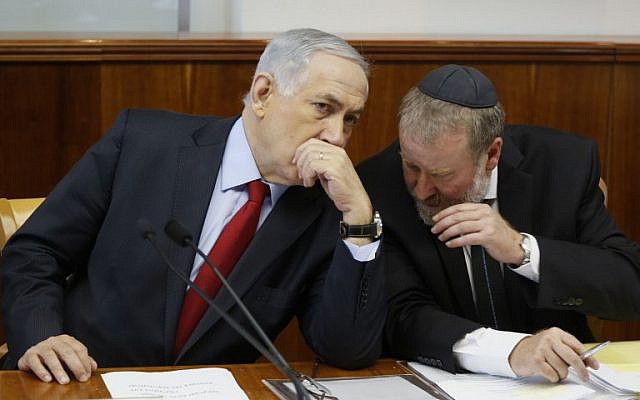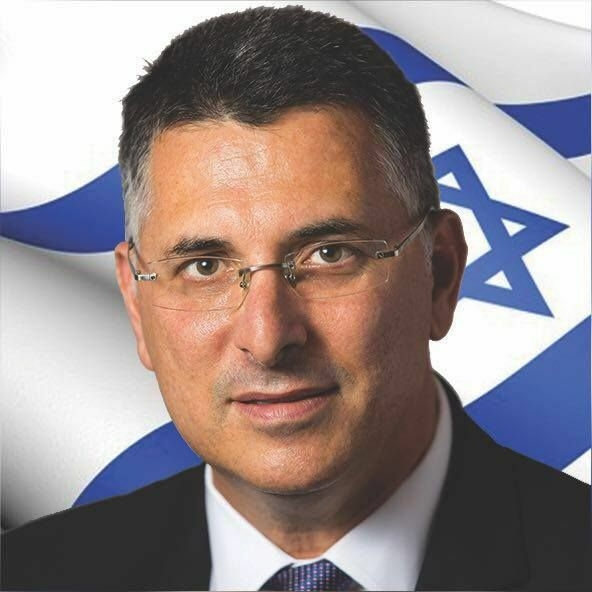Netanyahu’s Trial Takes Shape
Avichai Mendelblit listed 333 witnesses that the state may call to make its case. Among those witnesses are several American businessmen.

In late November, Israeli Attorney General Avichai Mendelblit announced that Prime Minister Benjamin Netanyahu could continue heading the caretaker government despite serious indictments charged against him. But Mendelblit refrained from ruling whether Netanyahu could be tasked with forming a new government, saying that it was too hypothetical. At that point, it looked unlikely that the Israeli parliament, or Knesset, could gather 61 votes for any member to receive that mission.
Apparently, President Reuven Rivlin now thinks otherwise. On Dec. 2, he asked Mendelblit to determine whether an indicted individual could be asked to form a new government. After two elections this year in which Netanyahu was unable to cobble together a coalition government, the task is in the hands of the Knesset until Dec. 11. If it is unable to choose someone who can form a government, the Knesset will be dissolved and the country will go to the polls for a third time within one year, probably in March.
Also on Dec. 2, Mendelblit refiled the indictment charges against Netanyahu, formally starting a 30-day period in which the prime minister can request immunity from the charges. At that point, Mendelblit also announced that Netanyahu’s trial would be heard before the Jerusalem District Court.
The attorney general listed 333 witnesses that the state may call to make its case. Among those witnesses are several American businessmen, including Oracle founder Larry Ellison, former U.S. ambassador Ronald Lauder, Israel Hayom newspaper publishers Sheldon and Miriam Adelson and Israeli-born Hollywood producer Arnon Milchan, who is also part of one of the cases in which Netanyahu is indicted.
After years of investigation, Netanyahu was indicted Nov. 21 of fraud and breach of trust in three cases, in addition to bribery in one of those cases. According to the indictment, the prime minister “damaged the image of the public service and public trust in it.”
The indictment of a sitting prime minister is unprecedented. So is the fact that there have been two elections this year without producing a new government. The country has been coasting along without a functional government for about a year. According to the latest Israeli Voice Index – a project of the Guttman Center for Public Opinion and Policy Research of the Israel Democracy Institute – the lack of stability has resulted in a sharp decline in the public’s faith in the country’s democracy.

In April, prior to the first election, 54 percent of Israelis reported feeling optimistic about the future of democracy. In the latest survey, announced on Thanksgiving, that number declined to 32 percent of Israelis. The IDI reported that the percentage steadily dropped over the past six months. Israelis are also less optimistic about the country’s national security, with only 49 percent reporting optimism now, compared to 59 percent in April.
Moreover, the IDI poll clearly shows that the electorate is blaming Netanyahu for the many months of political deadlock. Nearly 60 percent of those surveyed said Netanyahu should resign, at least temporarily, and a growing number of Israeli lawmakers and public figures have called for his resignation. Notably, that includes members of his ruling Likud party. Gideon Sa’ar, a potential Likud successor, requested that the party hold primaries to determine who should take them into the next probable election. The party has agreed to hold those primaries within the next few weeks, but the date hadn’t been set by press time.
- Jan Jaben-Eilon
- Israel
- Israel news
- Benjamin Netanyahu
- Indictment
- Trial
- Gideon Sa'ar
- Avichai Mandelblit
- President Reuven Rivlin
- Larry Ellison
- Ronald Lauder
- Sheldon Adelson
- Miriam Adelson
- Arnon Milchan
- Israeli Voice Index
- Guttman Center for Public Opinion and Policy Research
- Israel Democracy Institute



comments